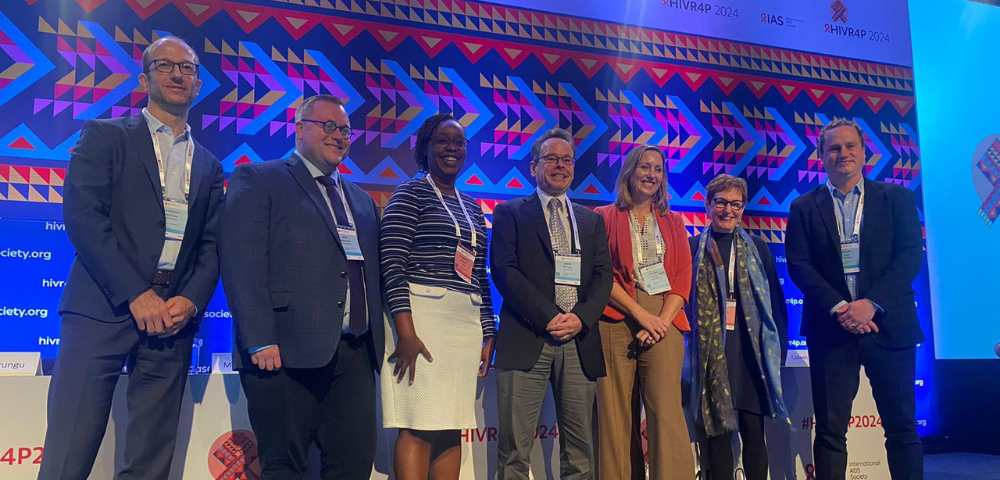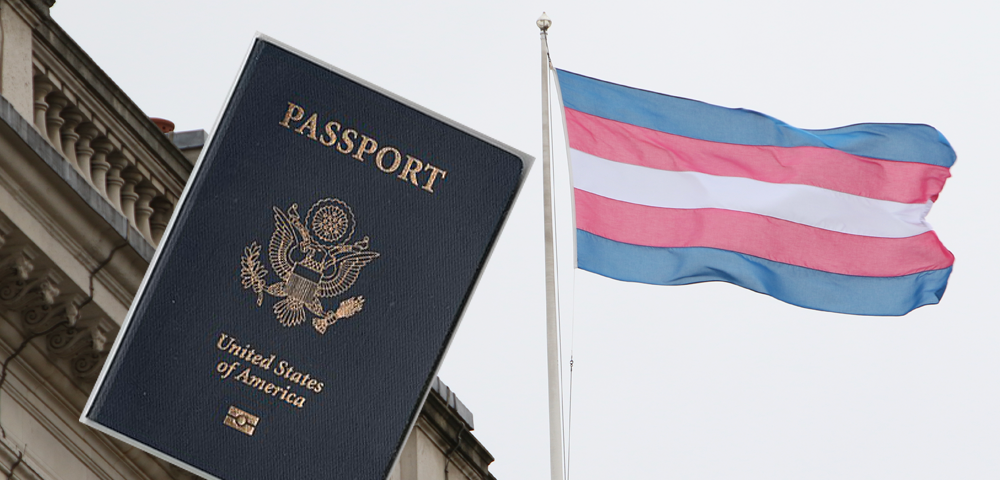
This Breakthrough Twice-Yearly Injection Shows 96% Efficacy Against HIV

Gilead Sciences’ lenacapavir, a biannual injection for PrEP, has been hailed as a breakthrough in HIV prevention after results from a new study showed a 96% reduction in HIV infections. Gilead plans to submit lenacapavir for regulatory approvals by the end of 2024.
New test results presented on Monday at the 5th HIV Research for Prevention Conference (HIVR4P 2024), currently underway in Lima, Peru, revealed a staggering 96% reduction in HIV acquisitions among cisgender men and gender-diverse individuals in the PURPOSE 2 study.
Beatriz Grinsztejn, President of the International AIDS Society (IAS), said that “lenacapavir for PrEP has the potential to transform the global HIV prevention landscape for people of all genders.”
In comments to the media, Linda-Gail Bekker, Professor of Medicine and Chief Operating Officer of the Desmond Tutu HIV Foundation, noted that lenacapavir for PrEP could represent a “paradigm shift” in HIV prevention.
What Is Lenacapavir?
HIV prevention options received a significant boost with the introduction of PrEP, taken either as a daily medication or on demand. According to Thorne Harbour Health, as of 2023, around 75,000 people have used PrEP in Australia. However, issues of adherence to the daily regimen persist.
GSK ViiV Healthcare’s long-acting Cabotegravir for PrEP, administered as a bi-monthly injection, received FDA approval in 2021.
The new injectable lenacapavir for PrEP, once approved, could become a mainstay in the fight against the HIV epidemic, particularly for those seeking long-acting alternatives to daily medication.
Lenacapavir is an antiretroviral medication approved by the FDA to treat HIV/AIDS., Long-acting lenacapavir—delivered via subcutaneous injection once every six months—was shown to be effective in preventing HIV.
What efficiency against HIV did the trial results show?
The PURPOSE 2 study involved 3,273 HIV-negative cisgender gay, bisexual, and other men; trans women; trans men; and gender non-binary individuals from Argentina, Brazil, Mexico, Peru, South Africa, Thailand, and the United States who have sex with partners assigned male at birth.
The randomised study assessed the safety and efficacy of lenacapavir for PrEP against once-daily oral Truvada.
On Monday, Professor Colleen Kelley of Emory University, the principal investigator, announced that only two of the 2,179 participants in the lenacapavir group acquired HIV—meaning 99.9% did not contract the virus. In contrast, there were nine HIV acquisitions in the once-daily oral Truvada group.
According to Gilead, lenacapavir for PrEP “reduced HIV infections by 96% compared to background HIV incidence” and was 89% more effective than once-daily Truvada.
Lenacapavir for PREP is highly effective against HIV
“These data reinforce that twice-yearly lenacapavir could be a highly effective and potentially game-changing choice in our efforts to end the HIV epidemic,” said Professor Kelley.
“PURPOSE 2 was intentionally designed to reflect the lives and locations of many people disproportionately affected by HIV worldwide by focusing on gender, racial, ethnic, and geographic diversity.”
No safety concerns were flagged during the study; injections were well tolerated among participants. The most common adverse event reported was injection site reactions. Some cases of rectal chlamydia infection and oropharyngeal gonococcal infection were observed among participants.
In response to a question about injection site reactions and adherence to a bi-annual regimen, Professor Kelley stated that available data indicated no significant discontinuations due to these reactions.
“I think there’s more exploration needed to understand injection site reactions within the trial. Those data will absolutely be forthcoming,” said Professor Kelley.
“One potential challenge may be persistence. We’ve never had a six-month product before. It remains uncertain how this will be implemented long-term in clinical settings. When we think about how frequently we touch people on oral prep and injectable cabotegravir right now, transitioning to something that is longer term, it remains to be seen how that will work. How do we keep people engaged when we don’t actually have to engage them very much,” added Professor Kelley.
What now?
Gilead stated it will commence regulatory filings for lenacapavir for PrEP by late 2024. If approved, it could be available for use by 2025 or 2026.
Last week, Gilead announced it had signed non-exclusive, royalty-free voluntary licensing agreements with six generic pharmaceutical manufacturers—three in India and one each in Pakistan, Egypt, and the US. These manufacturers will produce and supply lenacapavir to 120 countries following regulatory approvals.
While welcoming the announcement, IAS warned that these agreements still exclude millions in vulnerable countries. Grinsztejn noted that “large parts of the world remain excluded,” including countries where trials were conducted.
The AIDS Healthcare Foundation expressed concern that approximately two million people living with HIV in Latin America—particularly in Brazil, Mexico, Argentina, Colombia, and Peru—are left out and accused Gilead of viewing Latin America merely as a marketplace.
“Generic access to lenacapavir is a step in the right direction for improving treatment adherence,” said AHF President Michael Weinstein. “However, a drug with this much promise must be affordable for all nations that need it.”
Another concern raised by advocates is about the cost of both prevention and treatment drugs. Gilead has pledged support for low-cost access to lenacapavir.
“All stakeholders must collaborate now ahead of regulatory approvals to plan for a rapid and equitable global rollout of this crucial new prevention tool,” Grinsztejn said.
Shibu Thomas was awarded a Journalism Fellowship to attend the 5th HIV Research for Prevention Conference (HIVR4P 2024) in Peru.









